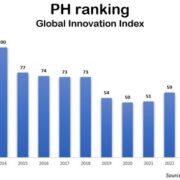The Board of Investments (BOI) recently approved the registration of two agriculture projects and one renewable energy (biomass) project worth a total of P2.8B.
These are Axelum Resources Corporation’s P270M Agglomerated Coconut Milk Powder and Other Plant-Based Infused Coconut Milk Powder Products project as a new export producer with an annual production capacity of 1.65 million kg; Mindoro Harvest Energy Co. Inc.’s P1.22B 8-megawatt (MW) Biomass power plant; and Biotech Farms, Inc.’s P1.33B expansion in its production of live hogs with an additional 54,600 hogs (5,460,000 kg) capacity.
The latest project approvals bode well for the industry as agriculture/agribusiness projects reached P364.8M in the first quarter of 2021 which is up 132% from P157.4M in the same period last year. The sector even recorded a 13% growth in projects in 2020 despite the pandemic with P3.84B from P3.4B the previous year. The power project, meanwhile, adds to the now growing power/electricity investments which already reached P122B in approved projects as of March 2021, a 2,800% increase from just P4.2B in the first quarter of 2020.
Trade Undersecretary and BOI Managing Head Ceferino S. Rodolfo said resource-based industries such as agriculture/agribusiness and power sectors remain the most resilient even with the ongoing health crisis. “The uptrend of project registrations particularly in the agriculture/agribusiness sector will go a long way towards boosting the sector’s output this year,” he said.
Department of Agriculture (DA) data shows that the agricultural output marginally declined in 2020 to 1.2%. Despite being the only one that was able to post a growth in the second and third quarter as most industries shrank, the DA is eyeing a 2.5% growth for the sector this year.
Axelum’s new project is expected to generate nearly 400 jobs once commercial operations start in May 2021. Its new manufacturing line in Misamis Oriental will be integrated and housed within the existing manufacturing facility, but a separate building was built for the huge spray dryer which is the main equipment for the proposed agglomerated coconut milk powder project. A separate building was also build to house the new boilers for the new manufacturing line.
The project will be strategically located in Region 10 Northern Mindanao, which was the second-highest coconut-producing region in 2019, comprising 12.4% of total national coconut production. The firm targets to export 100% of its production with 80% going to the Americas, the rest to Asia, the Middle East, and Europe.
Coconut products primarily exported by the Philippines are in the form of coconut oil (73% or USD 932.04M), desiccated coconut (22% or USD 256.75M), and copra meal (3.42% or USD 60.80M) in 2020, per data with the Philippine Statistics Authority (PSA). The Axelum project is expected to diversify the profile of coco-based exports of the Philippines as its coconut milk powder exports were only USD 14M in 2020.
The pandemic pushed Mindoro Harvest’s biomass project completion to around the end of 2022 with a commissioning date of January 2023. Once operational, it will contribute to meeting the 26.8 MW uncontracted demand of Oriental Mindoro Electric Cooperative, Inc. (ORMECO) as it is currently increasing its efforts in addressing the power supply problems within its coverage area. ORMECO has also scheduled the bidding for its 30-MW power supply with a 15-year contract duration from March 2022 to March 2037.
Biotech Farms will venture into the expansion of its swine division with the addition of a 2,500 sow-level piggery farm. It is in the same location as its existing swine production facility in South Cotabato which has a current capacity of 114,400 hogs (11.44 million kg). With the expansion, it will boost its annual production by 48% to 169,000 hogs (16,900,000 kg) as commercial operation starts on April 2022. Like its existing piggery farm, the Biotech expansion will also have state-of-the-art facilities with the latest pig production system similar to what is implemented in the United States and Australia to achieve healthy and efficient hog farms. Once operational, the project will help in the arrest of the continuously increasing pork importation. DA data showed that pork importations grew by an average rate of 7% per annum while local production grew about 2.5% yearly. Additionally, the pork demand was 1.25 million metric tons (MT) in 2020 with a local supply of 1.12 million MT hence there was a deficit of around 130,000 MT.
—
Stay updated with news and information from the Philippine Board of Investments by visiting their website at boi.gov.ph.






